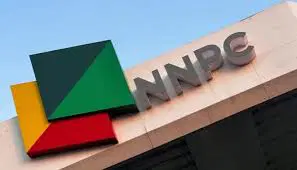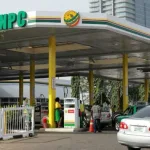NNPC Faces Financial Challenges Due to Rising Supply Costs
NNPC Ltd. is facing significant financial pressure due to rising Premium Motor Spirit (PMS) supply costs.
This situation is putting a strain on the company’s ability to maintain a stable fuel supply, raising concerns about the sustainability of fuel availability across the country.
Join our WhatsApp ChannelThe company has acknowledged recent reports in national newspapers that highlight its mounting debt to petrol suppliers.
In a statement issued by Olufemi Soneye, the Chief Corporate Communications Officer of NNPC Ltd., the company admitted that the financial burden has indeed placed considerable stress on its operations.
“NNPC Ltd. is under significant financial strain due to the high costs associated with the supply of PMS,” Soneye stated. “This situation has made it challenging for us to sustain a consistent supply of petroleum products nationwide, which is a matter of great concern.”
Commitment to National Energy Security
Despite the financial challenges, NNPC Ltd. remains committed to fulfilling its role as the nation’s supplier of last resort.
READ ALSO: NNPC Seeks Private Firms To Manage Kaduna, Warri Refineries
This responsibility is in line with the mandates outlined in the Petroleum Industry Act (PIA). The company has assured Nigerians that it is working closely with relevant government agencies and stakeholders to ensure that the fuel supply chain remains uninterrupted.
“We want to reassure the public that NNPC Ltd. is fully dedicated to maintaining national energy security,” Soneye said. “We are actively collaborating with various government agencies and stakeholders to address the financial challenges and ensure that the supply of PMS and other petroleum products continues smoothly.”
Impact on Fuel Supply Sustainability
The financial strain NNPC Ltd. is experiencing has raised concerns about the long-term sustainability of fuel supply in the country.
The company’s debt to petrol suppliers has reached a level that could potentially disrupt the consistent availability of fuel if not addressed promptly.
“The rising costs of PMS supply are a significant challenge that we are tackling head-on,” Soneye explained. “However, the sustainability of our fuel supply is at risk if these financial pressures continue without intervention. We are committed to finding solutions that will allow us to continue meeting the energy needs of the nation.”
NNPC’s Role and Responsibilities
Under the PIA, NNPC Ltd. has a crucial role in ensuring energy security for Nigeria. As the supplier of last resort, the company is expected to step in when there are supply disruptions or shortages, ensuring that the nation’s fuel needs are met.
This role is particularly important during times of crisis, where the availability of fuel is critical for the functioning of the economy and the well-being of the populace.
“The role of NNPC Ltd. as the supplier of last resort is one we take very seriously,” Soneye emphasised. “We understand the critical nature of our responsibilities, and despite the financial challenges, we are committed to fulfilling our duties.”
Looking Ahead
NNPC Ltd. is currently engaged in discussions with government agencies and other stakeholders to explore possible solutions to the financial challenges it faces.
The goal is to secure the necessary support to maintain a stable and sustainable fuel supply for the country.
“In the coming weeks, we will be intensifying our efforts to address these financial issues,” Soneye concluded. “Our priority remains the uninterrupted supply of petroleum products, and we will continue to do everything within our power to achieve this.”
The financial situation at NNPC Ltd. serves as a reminder of the complexities involved in maintaining a consistent fuel supply in the face of rising costs and economic pressures.
The company’s ongoing efforts to collaborate with stakeholders will be crucial in determining the future stability of fuel availability in Nigeria.
Emmanuel Ochayi is a journalist. He is a graduate of the University of Lagos, School of first choice and the nations pride. Emmanuel is keen on exploring writing angles in different areas, including Business, climate change, politics, Education, and others.
- Emmanuel Ochayihttps://www.primebusiness.africa/author/ochayi/
- Emmanuel Ochayihttps://www.primebusiness.africa/author/ochayi/
- Emmanuel Ochayihttps://www.primebusiness.africa/author/ochayi/
- Emmanuel Ochayihttps://www.primebusiness.africa/author/ochayi/


















Follow Us